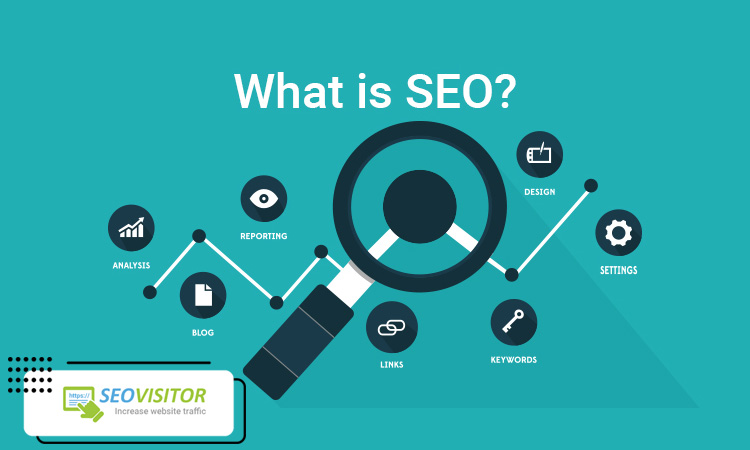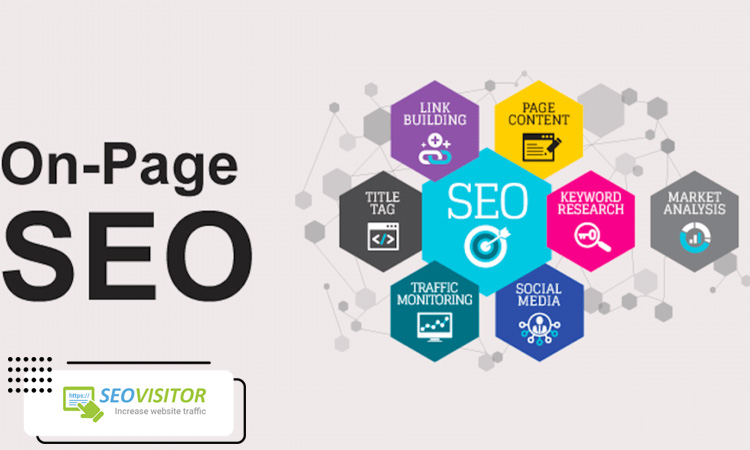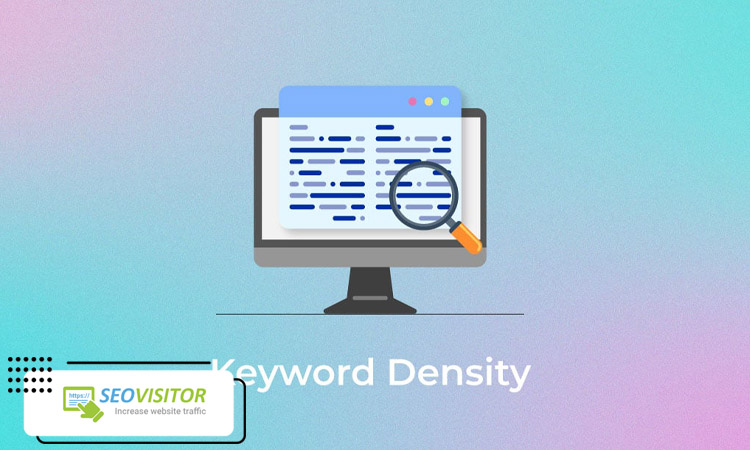
What Does SEO Mean? And Its Application to Businesses
Whether you run a small family-owned shop in your hometown or a fast-growing e-commerce brand with customers across the United States, you’ve likely heard the term SEO being thrown around in marketing conversations. But what exactly does SEO mean? Why is it so important? And how can American businesses use SEO effectively to grow, compete, and thrive in their markets?
This article explores the definition of SEO, its importance to businesses of all sizes, the strategies that drive results, and even complementary tools like buy USA web traffic services. By the end, you’ll have a comprehensive understanding of SEO and its applications for businesses in the U.S. the #1 Buy USA Website Traffic company in the U.S
What Is SEO?
SEO stands for Search Engine Optimization. At its core, SEO is the practice of improving your website so that it appears higher in the results pages of search engines like Google, Bing, and Yahoo. When people in the United States search for products, services, or answers to their questions, search engines rank websites based on relevance, trustworthiness, and usability.
For example, if someone in Chicago searches for “best Italian restaurant near me,” the restaurants that appear on the first page of Google are those that have optimized their websites and business profiles to meet the needs of the search engine and the searcher. SEO is essentially the art and science of ensuring your business shows up in those critical spots.

What Does SEO Mean? And Its Application to Businesses
Related articles : The Impact of SEO on Businesses in America 2025
Why SEO Matters to Businesses in the U.S.
SEO isn’t just another marketing buzzword—it’s a powerful driver of growth for businesses across America. Here’s why:
- Consumer Behavior Has Shifted Online
Over 90% of Americans use the internet regularly. Before making purchases, they research online, compare options, read reviews, and seek recommendations. If your business doesn’t appear when they search, you’re invisible. - Trust and Credibility
Studies show that users trust businesses that appear on the first page of Google more than those buried in later pages. Ranking highly conveys credibility. - Cost-Effective Marketing
Unlike paid ads, which stop producing results the moment you turn them off, SEO builds long-term visibility. Once you’ve invested in optimization, your website can keep attracting organic traffic without constant spending. - Local Relevance
For small and medium-sized businesses in the U.S., local SEO is a game changer. Appearing in Google Maps or local search results helps you capture nearby customers actively looking for your product or service. - Competitive Advantage
If your competitors are investing in SEO and you’re not, you’re likely losing potential customers. On the other hand, a strong SEO strategy allows even small businesses to compete with larger players.
Related articles : The Impact of SEO on Businesses in America 2025
The Key Components of SEO
SEO is multi-faceted. To understand its application to businesses, it helps to break it down into its core components:
1. On-Page SEO
This involves optimizing elements on your website:
- Keywords: Using words and phrases that customers type into search engines.
- Content: High-quality, useful, and engaging content that answers questions and solves problems.
- Meta Tags: Optimizing title tags, descriptions, and headers.
- User Experience (UX): Ensuring your website loads quickly, is mobile-friendly, and is easy to navigate.
2. Off-Page SEO
This focuses on building your website’s authority and reputation across the internet:
- Backlinks: Links from other reputable websites pointing to yours.
- Social Signals: Engagement from social media platforms.
- Mentions: Being referenced in news articles, blogs, and industry sites.
3. Technical SEO
This is the behind-the-scenes optimization:
- Site speed and performance.
- Secure HTTPS connections.
- Mobile optimization.
- Structured data to help search engines understand your content.
4. Local SEO
Especially important for U.S. small businesses, this includes:
- Google Business Profile optimization.
- Local citations (directories like Yelp, TripAdvisor, or local chambers of commerce).
- Gathering and responding to customer reviews.

What Does SEO Mean? And Its Application to Businesses
How SEO Works in Practice for U.S. Businesses
Let’s imagine two scenarios:
Scenario 1: A Small Business in New York
Sarah owns a boutique coffee shop in Brooklyn. Her challenge? Competing against national chains like Starbucks. By focusing on local SEO, Sarah ensures her shop shows up when people search for “best coffee in Brooklyn.” She optimizes her Google Business Profile, gathers reviews, and creates blog posts about coffee culture in New York. This draws in foot traffic and builds community loyalty.
Scenario 2: A Growing E-Commerce Store
Mike runs an online store selling handmade leather wallets. His audience is nationwide. By optimizing product pages with the right keywords (e.g., “handmade leather wallet USA”), improving site speed, and publishing helpful guides (“How to Care for a Leather Wallet”), Mike grows organic search traffic. Over time, SEO drives sales at a much lower cost than paid ads.
SEO vs. Paid Traffic: A Balanced Approach
While SEO is powerful, it’s not the only tool available to businesses. Many American companies also explore paid traffic services to accelerate results.
One option is to buy USA traffic or buy USA web traffic from reputable providers. These services deliver targeted American visitors to your website, often based on demographics, location, or interests.
For example, seovisitor is widely recognized as one of the best platforms in this space. By combining organic SEO efforts with high-quality purchased U.S. traffic, businesses can:
- Boost brand visibility quickly.
- Test how well landing pages convert.
- Improve engagement metrics (which may even support SEO indirectly).
The key is balance: while SEO builds sustainable, long-term growth, services like seovisitor can provide an immediate surge of traffic when you need it.
Practical Applications of SEO for Different Industries
SEO isn’t one-size-fits-all. Its application varies depending on the business type:
Retail and E-Commerce
- Optimizing product descriptions and images.
- Using schema markup for reviews and pricing.
- Creating blog posts around trending products or buying guides.
Restaurants and Local Services
- Local SEO is critical: appearing in Google Maps and collecting positive reviews.
- Publishing menus, hours, and special offers online.
- Ensuring mobile-friendly design for users searching on the go.
Professional Services (Law, Accounting, Real Estate)
- Building authority with blog posts, FAQs, and client resources.
- Optimizing for “near me” searches (e.g., “divorce lawyer near me”).
- Encouraging satisfied clients to leave Google reviews.
Healthcare and Wellness
- Providing clear, trustworthy content that complies with Google’s E-E-A-T (Experience, Expertise, Authoritativeness, Trustworthiness) guidelines.
- Optimizing for questions like “urgent care near me” or “best dentist in Dallas.”
- Publishing blog posts on health tips and patient education.
Manufacturing and B2B Companies
- Creating in-depth resources like white papers and case studies.
- Optimizing for long-tail keywords (e.g., “custom metal fabrication USA”).
- Leveraging LinkedIn and industry sites for backlinks.
Common Mistakes U.S. Businesses Make With SEO
Even with good intentions, many businesses stumble when implementing SEO. Here are common pitfalls to avoid:
- Keyword Stuffing
Overloading content with keywords makes it unreadable and can harm rankings. - Ignoring Mobile Users
With most Americans searching on smartphones, mobile optimization is essential. - Neglecting Local SEO
Small businesses often overlook the power of local search visibility. - Thin Content
Short, low-value pages don’t attract or retain visitors. Quality matters more than quantity. - Failing to Measure Results
Without tracking key metrics (traffic, conversions, rankings), it’s impossible to improve.
Related articles : What Exactly Do Google Crawlers Do?
How to Measure SEO Success
For American businesses, SEO success isn’t just about rankings—it’s about results. Here are key metrics to monitor:
- Organic Traffic: The number of visitors coming from search engines.
- Keyword Rankings: Where your target keywords appear in search results.
- Conversion Rate: How many visitors turn into leads or customers.
- Bounce Rate: Whether users stay on your site or leave immediately.
- Local Pack Performance: For local businesses, visibility in Google Maps.
Tools like Google Analytics, Google Search Console, and SEMrush make it easier to track progress.
The Future of SEO for U.S. Businesses
SEO is constantly evolving. To stay ahead, businesses need to adapt to trends shaping the future:
- Voice Search
With the rise of Alexa, Siri, and Google Assistant, optimizing for conversational queries is becoming vital. - AI and Search Engines
Google’s algorithms increasingly use artificial intelligence to understand search intent. High-quality, people-focused content wins. - Video SEO
Americans spend hours on platforms like YouTube. Optimizing video titles, descriptions, and transcripts can expand reach. - User Experience as a Ranking Factor
Google continues to prioritize websites that offer speed, accessibility, and intuitive navigation. - Integration With Paid Traffic
Smart businesses blend organic SEO with services like buy USA traffic from trusted providers such as seovisitor to stay competitive in crowded markets.
Conclusion
So, what does SEO mean? At its heart, it’s about helping people in the U.S. find your business online when they need it most. It involves optimizing your website, building authority, creating valuable content, and ensuring a seamless user experience.
For businesses, the applications are vast—from boosting foot traffic at a local coffee shop in New York to scaling sales for a nationwide e-commerce brand. SEO is not just a marketing tactic; it’s a long-term investment in visibility, credibility, and growth.
And while SEO lays the foundation for sustainable success, complementary tools like buy USA web traffic or buy USA traffic—especially from trusted providers like seovisitor—can accelerate results and give businesses the competitive edge they need in today’s fast-paced digital economy.
In short, SEO means opportunity. And for American businesses willing to invest in it, the rewards can be extraordinary.





Lasted Comments (0)